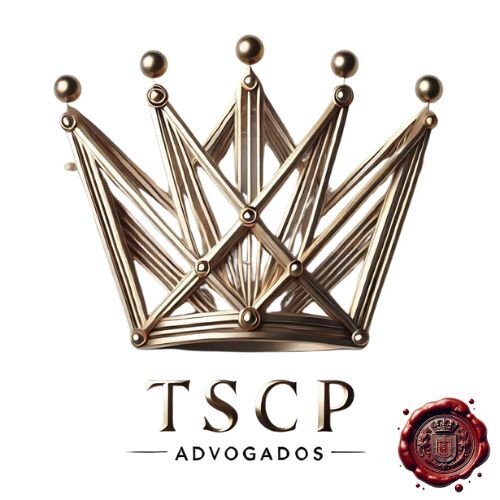Best Collaborative Law Lawyers in Portugal
Share your needs with us, get contacted by law firms.
Free. Takes 2 min.
Free Guide to Hiring a Family Lawyer
Or refine your search by selecting a city:
List of the best lawyers in Portugal
About Collaborative Law in Portugal
Collaborative Law in Portugal is a relatively new approach to resolving legal disputes that emphasizes cooperation and negotiation over adversarial litigation. This method is particularly utilized in family law cases, such as divorces or child custody agreements, but can also be applied to other areas requiring dispute resolution without court intervention. Collaborative Law encourages parties to focus on mutual interests, working with a team of specially trained professionals, including lawyers, financial advisors, and mental health experts, to reach a fair and lasting solution. This process is designed to help preserve relationships and reduce the emotional and financial stresses typically associated with traditional legal proceedings.
Why You May Need a Lawyer
There are numerous situations in which an individual may require the assistance of a lawyer specializing in Collaborative Law in Portugal. Common scenarios include:
- Complex family disputes, such as contentious divorces or separations where children are involved and a harmonious resolution is desired.
- Disagreements over property division during divorce, where parties are interested in maintaining open communication and a fair outcome.
- Situations in non-marital partnerships or civil unions requiring separation terms and asset division.
- Workplace disputes where maintaining a professional relationship is advantageous for both parties.
- Resolving small business conflicts involving partners or employees amicably to avoid negative impact on business operations.
Local Laws Overview
In Portugal, the practice of Collaborative Law is governed by specific principles that align with the collaborative law movement observed in other parts of the world. Key aspects include:
- Voluntary Participation: Both parties must willingly participate in the collaborative process and commit to resolving issues without going to court.
- Confidentiality: All discussions and documents shared within the collaborative sessions are confidential and cannot be used in court if the process fails.
- Legal Representation: Each party is represented by a collaborative lawyer who has received specialized training in this field to facilitate negotiations effectively.
- Support of Experts: Teams may include additional professionals, such as financial analysts, child specialists, or therapists, to provide expertise in various areas of the dispute.
- No Litigation Threats: Participation in a collaborative process requires that parties agree not to initiate court proceedings while engaged in negotiations.
Frequently Asked Questions
What is Collaborative Law?
Collaborative Law is a legal process enabling parties to resolve their disputes outside of court through negotiation and cooperation, often with the support of legal and other professionals.
How does Collaborative Law differ from traditional litigation?
Collaborative Law differs from traditional litigation as it focuses on mutual agreement and openness rather than confrontation, aiming to preserve relationships and minimize conflict.
Who can participate in a Collaborative Law process?
Any parties involved in a dispute where both are willing to resolve issues amicably without going to court can participate, generally advised by their respective collaborative lawyers.
Is Collaborative Law only for family disputes?
While commonly used for family disputes, Collaborative Law can be applied to any situation where parties wish to resolve conflicts cooperatively, such as business disputes or workplace disagreements.
What happens if the Collaborative Law process breaks down?
If the process breaks down, collaborative lawyers cannot represent the parties in subsequent litigation, and parties must seek new legal representation if they wish to pursue the matter in court.
How long does the Collaborative Law process take?
The duration of the process depends on the complexity of the issues and the cooperation between parties, often concluding faster than traditional litigation.
Are the outcomes legally binding?
Once an agreement is reached, collaborative lawyers draft a legally binding contract, which must then be approved by a court to be enforceable.
Can outcomes be modified later?
Yes, agreements reached can be modified later if both parties agree on the changes, usually through further collaborative negotiation or mediation.
Is Collaborative Law recognized by the Portuguese legal system?
Yes, the Portuguese legal system recognizes Collaborative Law as a valuable method for dispute resolution, supporting its principles and promoting its practice.
How do I find a collaborative lawyer in Portugal?
You can find a collaborative lawyer by contacting legal associations, searching online directories, or seeking recommendations from those familiar with family law in Portugal.
Additional Resources
For individuals seeking further information on Collaborative Law in Portugal, the following resources may be useful:
- Portuguese Bar Association (Ordem dos Advogados): Offers resources and a directory of licensed lawyers.
- Instituto de Mediação e Arbitragem de Portugal (IMAP): Provides information on alternative dispute resolution methods, including collaborative law.
- Books and publications on collaborative law and negotiation strategies specific to Portuguese legal context.
Next Steps
If you need legal assistance in Collaborative Law in Portugal, consider the following steps:
- Consult the Portuguese Bar Association to find a list of accredited collaborative lawyers in your area.
- Schedule consultations with potential lawyers to discuss your specific needs and the collaborative process.
- Evaluate their experience, approach, and whether they align with your goals for dispute resolution.
- Review all terms and fees involved before formally engaging a lawyer for your collaborative process.
- Prepare all necessary documents and information for your initial meetings to ensure a productive start to your discussions.
Lawzana helps you find the best lawyers and law firms in Portugal through a curated and pre-screened list of qualified legal professionals. Our platform offers rankings and detailed profiles of attorneys and law firms, allowing you to compare based on practice areas, including Collaborative Law, experience, and client feedback.
Each profile includes a description of the firm's areas of practice, client reviews, team members and partners, year of establishment, spoken languages, office locations, contact information, social media presence, and any published articles or resources. Most firms on our platform speak English and are experienced in both local and international legal matters.
Get a quote from top-rated law firms in Portugal — quickly, securely, and without unnecessary hassle.
Disclaimer:
The information provided on this page is for general informational purposes only and does not constitute legal advice. While we strive to ensure the accuracy and relevance of the content, legal information may change over time, and interpretations of the law can vary. You should always consult with a qualified legal professional for advice specific to your situation.
We disclaim all liability for actions taken or not taken based on the content of this page. If you believe any information is incorrect or outdated, please contact us, and we will review and update it where appropriate.
Browse collaborative law law firms by city in Portugal
Refine your search by selecting a city.
















